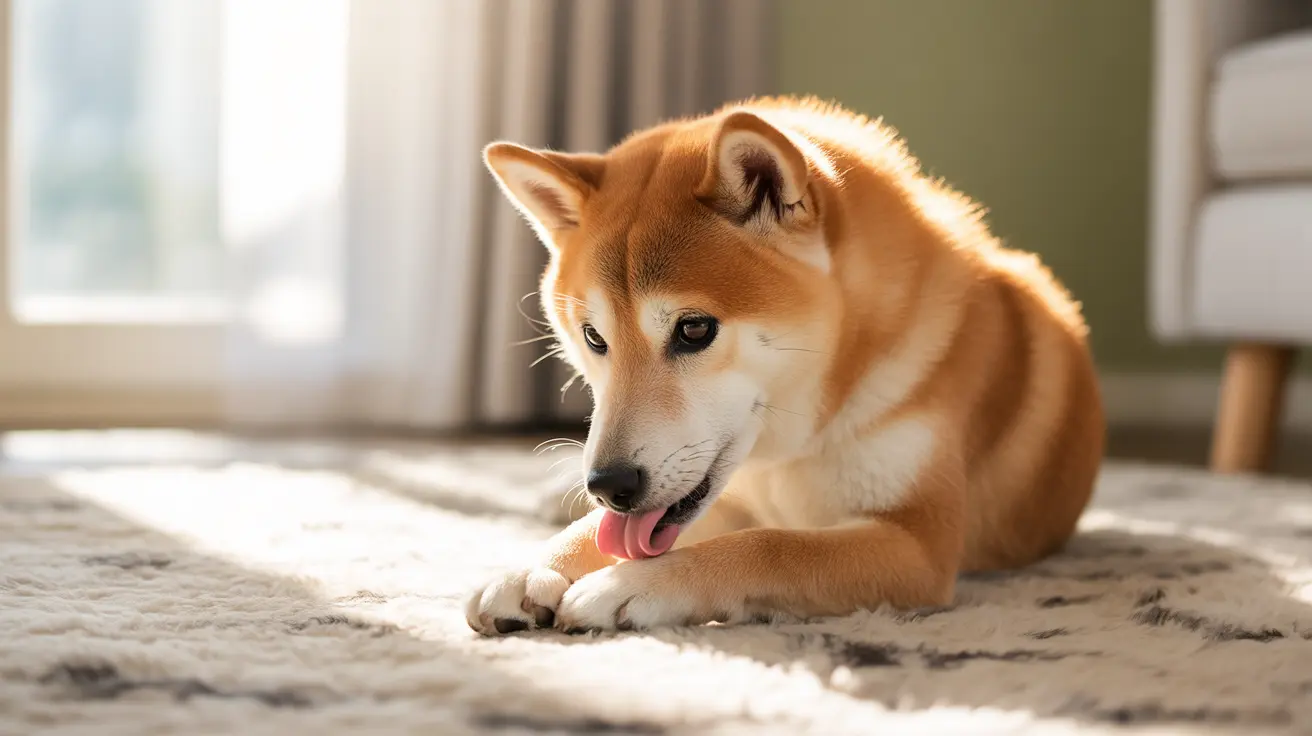If you've noticed your male dog excessively licking himself, you're not alone. While some licking is normal grooming behavior, persistent or obsessive licking can signal underlying health issues or behavioral concerns that require attention. Understanding why your dog is engaging in this behavior is crucial for finding the right solution.
In this comprehensive guide, we'll explore the various causes of excessive licking in male dogs, from medical conditions to psychological factors, and provide practical solutions to address this common concern.
Medical Causes of Excessive Licking
Genital and Urinary Issues
Male dogs may excessively lick their genital area due to infections, inflammation, or urinary tract problems. An increase in preputial discharge or discomfort can trigger persistent licking. If you notice unusual discharge or your dog seems uncomfortable, veterinary examination is essential.
Skin Conditions and Allergies
Allergic reactions, bacterial infections, or fungal infections can cause intense itching, leading to excessive licking. Environmental allergens, food sensitivities, or parasites like fleas can all trigger these responses. Watch for signs like redness, swelling, or hair loss in affected areas.
Pain and Physical Discomfort
Dogs often lick areas where they experience pain or discomfort. This could be due to joint problems, injuries, or internal health issues. If your dog consistently licks specific body parts, particularly joints or muscles, they may be trying to self-soothe due to underlying pain.
Behavioral Causes
Anxiety and Stress
Many dogs turn to excessive licking as a coping mechanism for anxiety or stress. Changes in routine, separation anxiety, or environmental stressors can trigger this behavior. The act of licking releases endorphins, providing temporary relief from emotional distress.
Compulsive Behaviors
Some dogs develop obsessive-compulsive licking behaviors, which can become habitual even after the original trigger is resolved. This can lead to the formation of lick granulomas or other skin problems if left untreated.
Treatment and Prevention Strategies
Medical Interventions
Treatment depends on the underlying cause. Your veterinarian may prescribe antibiotics for infections, anti-inflammatory medications for allergies, or specific treatments for identified health conditions. Regular check-ups can help catch potential issues early.
Behavioral Solutions
For anxiety-related licking, consider:
- Increasing physical exercise and mental stimulation
- Maintaining consistent daily routines
- Using calming aids or pheromone products
- Working with a professional animal behaviorist if needed
Environmental Management
Create a comfortable, stress-free environment for your dog. Remove potential allergens, provide appropriate toys for distraction, and ensure they have a safe space to retreat when feeling anxious.
Frequently Asked Questions
Why is my male dog constantly licking himself, and what are the common medical causes?
Common medical causes include urinary tract infections, skin allergies, infections, hormonal imbalances, and pain from injury or inflammation. Any unusual increase in licking should be evaluated by a veterinarian to rule out medical conditions.
How can I determine if my dog's excessive licking is due to anxiety or stress, and what steps can I take to address it?
Look for patterns in when the licking occurs, such as during thunderstorms or when left alone. Address anxiety through increased exercise, behavioral training, and potentially anti-anxiety medications prescribed by your veterinarian.
What are the most common signs of a urinary tract infection in dogs that might cause excessive genital licking?
Common signs include frequent urination, straining to urinate, blood in urine, and increased licking of the genital area. Additional symptoms may include lethargy, increased thirst, and accidents in the house.
How do I know if my dog's excessive licking is related to allergies or skin infections, and what treatments are available?
Look for redness, swelling, hair loss, or skin changes in licked areas. Your vet can perform tests to determine if allergies or infections are present and prescribe appropriate treatments such as antihistamines, antibiotics, or medicated shampoos.
What are some behavioral interventions I can use to help my dog stop compulsive licking, and when should I consult a veterinarian for professional advice?
Try redirecting your dog's attention with toys or activities, increasing exercise, and maintaining a consistent routine. Consult a veterinarian if the licking persists, causes skin damage, or significantly impacts your dog's quality of life.
Conclusion
While some licking is normal for male dogs, excessive licking usually indicates an underlying issue that needs attention. By working with your veterinarian to identify and address the root cause, you can help your dog find relief and return to normal, healthy behavior patterns.






